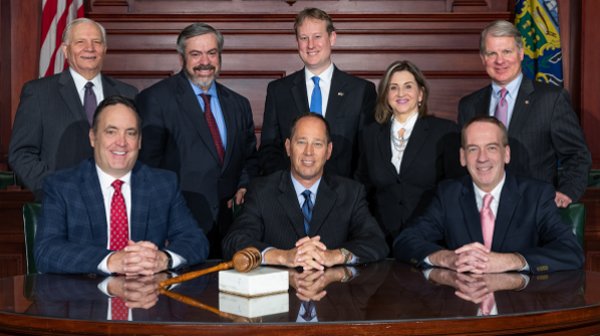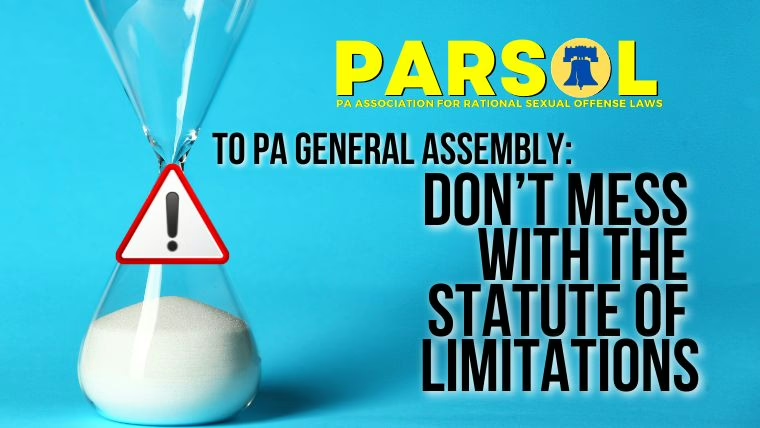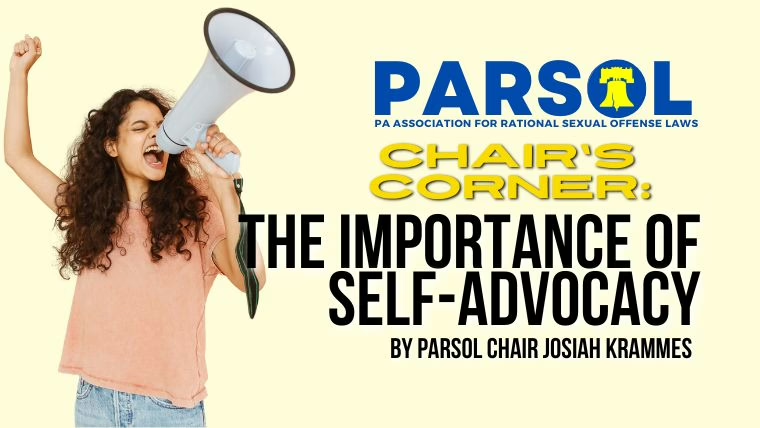By Randall Hayes
In September 2019, the increasingly prevalent and in-demand problem of online images of child sexual abuse (CSA) or “child pornography” rocked the Senate of Pennsylvania in a big way. The influential Chairman of the State Government Committee, Senator Mike Folmer, was arrested and charged with possession of child pornography after uploading an image of an underage female to his Tumblr account. Following his resignation, he was eventually sentenced to a 1-2 year term of confinement and 8 years of probation.
His replacement, Senator David Arnold, is a former county-level District Attorney. Given his background as a prosecutor, the scandal surrounding Senator Folmer, and the public outrage in anticipation of a lenient-sentence double-standard for a State Senator vs. an average Joe, it did not come as a surprise when Senator Arnold introduced Senate Bill 1075 in April 2020. This bill sought to increase the penalties for child pornography crimes where abuse is depicted or victims are prepubescent.
As Legislative Director for The PA Association for Rational Sexual Offense Laws (PARSOL), SB 1075 came to my attention as a proposal that ran counter to our mission: A PA Safe and Just For All.
What years of research on a variety of social ills has demonstrated is that tougher penalties are not effective at reducing behavior. As a Sep. 2019 feature in The New York Times details, the unfortunate reality about images of CSA is that this material has only become more popular even as criminal penalties have become more severe.
Informed by research that PARSOL has collected over years, I reached out to Senator Arnold’s office to voice my concerns. I applauded the Senator for raising the issue of the prevalence of this material online. Victims in these crimes do suffer and perpetrators should be prosecuted. I explained, however, that tougher penalties for a felony that already carries life-long consequences and years in prison is not the answer to combating CSA. Instead of reactive measures that focus on punishment and sentencing, a more effective approach is a plan of prevention advocated by experts in the field such as Dr. Elizabeth Letorneau of Johns Hopkins Bloomberg School of Public Health.
I suggested to the Senator’s office that a truly impactful approach to preventing the kind of trauma that victims of CSA and online images of abuse incur would be the formation of a task force of experts and policy-makers who have a stake in the reduction of CSA. This is precisely the first step that Dr. Letorneau advocates for.
The Senator’s Chief of Staff was very responsive. He considered PARSOL’s input and drafted language to include exactly such a task force. It was very encouraging to see that the Senator’s Office was open and willing to take advice from the experts on the best ways to implement prevention-based strategies.
Using the text that Sen. Arnold’s office drafted, the Chairwoman of the Senate Judiciary Committee, Lisa Baker, amended the bill and officially proposed PA’s first CSA Prevention Task Force (CSAPTF) in September 2020.
The CSAPTF was comprised of 19 individuals from a variety of backgrounds including medicine, victims’ rights, mental health, law enforcement, the public, and the Legislature. Its stated purpose was to:
- “Develop guidance, tools and sexual abuse prevention and intervention frameworks for supporting PA Child Welfare Services and The General Assembly in efforts to better protect the children and youth entrusted to the care of PA Child Welfare Services”, and
- “Create long-range plans and strategies for statewide community education about child sexual abuse and its prevention.”
Among other powers and duties listed, the CSAPTF would:
- Review current best practices for primary, secondary, and tertiary CSA prevention strategies.
- Gather information concerning CSA throughout the Commonwealth.
- Receive reports and testimony from individuals, agencies, and organizations.
- Develop guidelines and tools for the development of sexual abuse prevention and intervention plans by organizations serving children and youth.
- Develop a five year plan for using community education and other strategies to increase public awareness about child sexual abuse including how to recognize signs, minimize risk and act on suspicions or disclosure of such abuse.
These were just some of the concrete steps that the proposed Task Force would have been responsible for. Although the enhanced penalties for images of CSA were kept in this expanded bill, SB 1075 had evolved into something which was clearly focused on prevention and getting to the root of the problem. It was the best plan for sexual harm-reduction that the Commonwealth may have ever seen and an encouraging start to rational sexual offense laws.
The bill moved swiftly through the Senate and the legislative process on its way to becoming law. Like any bill, it can be amended along the way to clear up ambiguities or better address the issue it tackles. Some amendments are small, like changing a $50 limit to a $25 limit. Amendments can also encompass several pages and turn a piece of legislation into something that doesn’t look anything like what it began as.
In October 2020, the bill was made available to the full Senate for examination and amendments. According to Sen. Arnold’s office, they received word from Senate Leadership that Leadership was looking at the bill and wanted to make some adjustments to the composition of the Task Force. When the bill came to the Senate for a full vote, Senator Arnold accepted the input from Leadership and introduced an amendment that fully removed the CSA Prevention Task Force.
The bill now outlines the creation of The Task Force on Child Pornography. The purpose of this Task Force is “to conduct a review to ascertain any inadequacies relating to the offense of child pornography”.
Membership of this board looks different than the CSAPTF: there is no longer a representative from the field of mental health and the presence of the police and courts are expanded. The powers of this 20-member body include:
- To recommend any improvements relating to the investigation and prosecution of child pornography
- To recommend any necessary changes in state statues and practices, policies and procedures relating to the recognition or prosecution of child pornography
I was very much taken aback by this development. While we cannot ever expect a perfect bill, this amendment drastically changed the nature of the Task Force. What was most alarming was the complete elimination of the word “prevention” from the document. Senator Arnold’s amendment gutted the very idea of prevention of sexual harm and in its place seeks to create a body that would recommend stiffer penalties for online images of CSA.
The bill passed the PA Senate unanimously, 50-0.
The idea of enacting stiffer penalties for this crime is that it will deter people from engaging in the exploitation of children. I want to make one point very clear to the fifty Senators who voted in favor of this bill and to the 203 Members of the House who will vote on it: the evidence for the effectiveness of this approach is non-existent.
I am left questioning the intent of Senator Arnold and the PA Senate Leadership on this matter. They had a five-star plan that was backed by experts, and they completely scrapped it. Do they want to do their best to prevent children from being subjected to sexual abuse, or do they simply want to react and keep offenders in prison longer?
There is no evidence to support the idea that keeping the people who seek out this material in prison longer will reduce the number of children who fall prey to sexual molestation. I’m sorry to say it, but this problem is not going away and it cannot be “punished away”. Our current approach is not working.
On the other hand, if we focus on education and understanding why this plague has continued to grow and expand and mutate, then we can form strategies to fight it. If we implement these strategies, fewer PA children will have to wear the label of “victim” for the rest of their lives.
To our elected officials in the PA Senate and House, I ask you: Do the people of PA really want to go down the same “tough on crime” road that has left us with record amounts of CSA in our communities and online? Or do they want the best approaches that decades of research have demonstrated to be the most effective?
The choice is clear. The responsibility is yours.




